
- How about winning a flight ticket worth up to US$500?
- Become a member by January 31st and get a chance to win!
Crime in Brazil shouldn't be taken lightly, but there are things that any traveler can do to have a safe and enjoyable experience.
13min
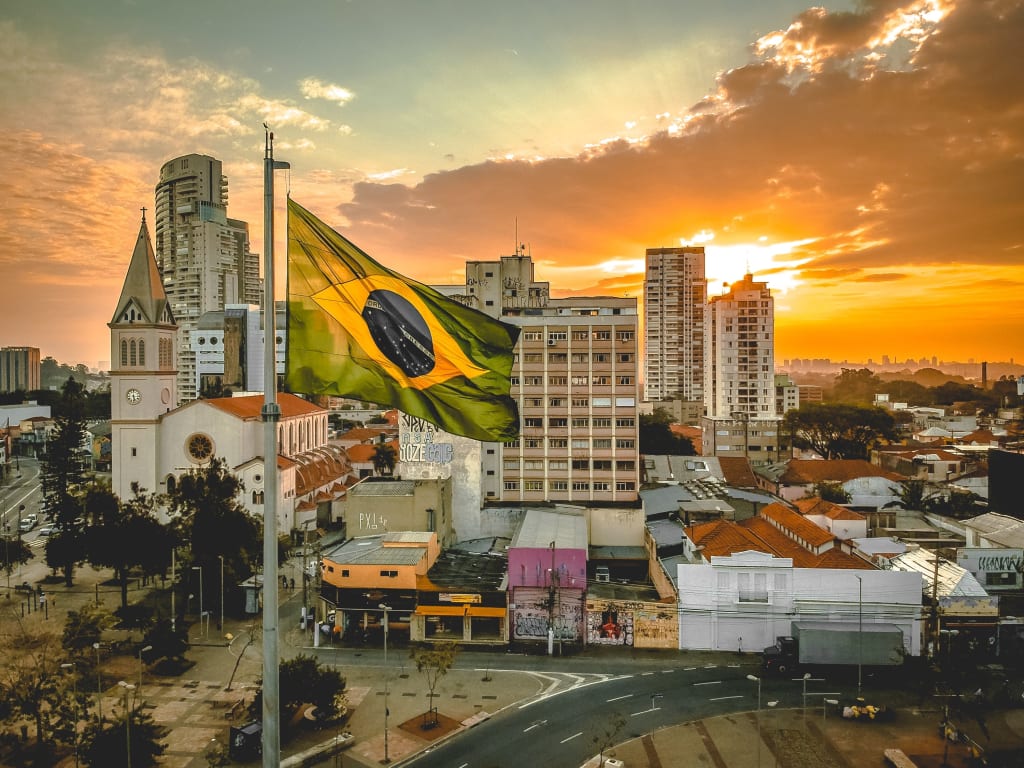
It's no doubt a stunning travel destination, but is Brazil safe? Crime is a big deal in this Latin American country, but the situation for a typical tourist isn't as bad as you may think. In this article, I'll help you understand how safe it actually is and share some helpful advice for you to have a safe and enjoyable travel experience.
As with any country on Earth, there are good and bad parts. I've lived in Brazil for over a year as a digital nomad visiting 7 of 26 states up and down the country, so I've got a good feel for the place.
For information, I'm a white male, six foot tall and fairly well built. Why is that important? Sexual violence in Brazil is a big problem. While most of the statistics relate to domestic cases, I would be foolish not to acknowledge that traveling through Brazil is a different experience for males and females.
As a general rule, Brazil is safe for tourists. If you plan on visiting the major cities and checking off the popular tourist spots then you're unlikely to experience any issues traveling safely through Brazil. If you're walking or cycling around the pedestrian areas during the daytime then 9 times out of 10 you'll be absolutely fine.
The problems come when you either wander from the main streets or you're not aware of your surroundings. While it's easy to get caught up in the energy and vibrancy around every Brazilian corner, you need to keep your wits about you.
The gap between the rich and poor in Brazil is huge and getting bigger. While the bottom half of the population earn an average monthly income of $203 (below the minimum wage and a 3.5% drop from the year before, the top ten percent saw their income rise 6% to an average $2,642 (stats from PNAD-IBGE 2017). The number of poor people also rose 11% from 13.3 million in 2016 to 15 million (7% of the population) in 2017.
Keep this in mind when you're waving around your shiny new phone, counting your walletful of cash or changing the lens on your DSLR camera.
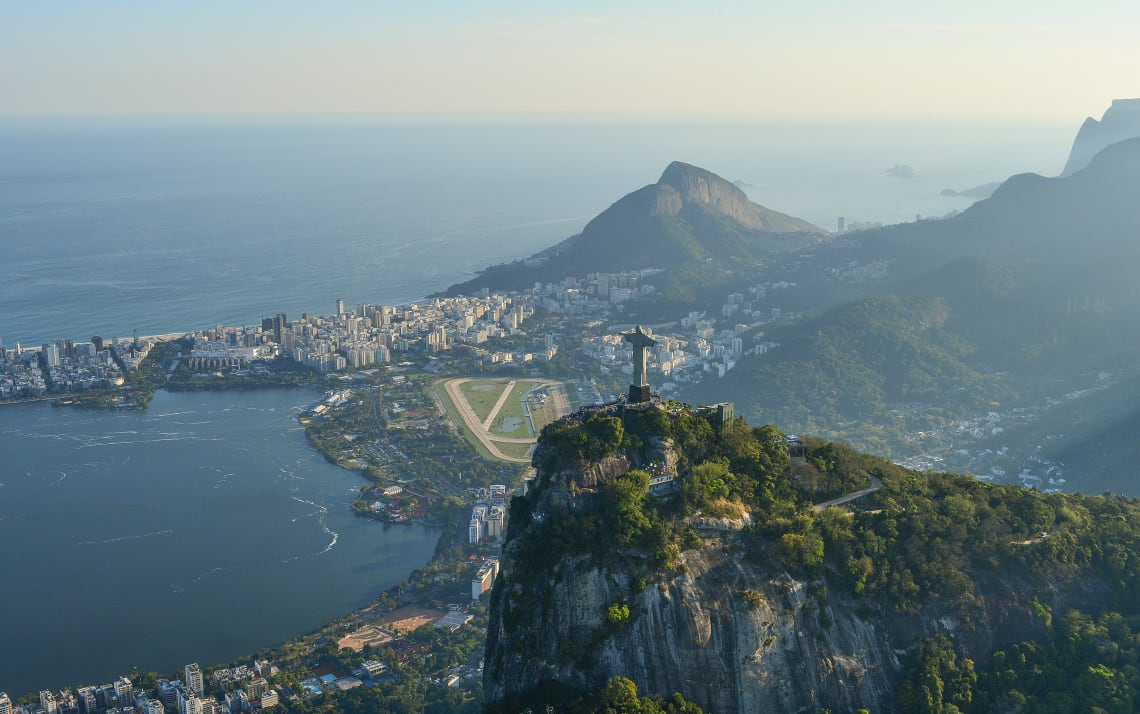
Brazil has a machismo culture, there's no sugarcoating it. It's similar across all of Latin America, but Brazil seems to take it a step further.
Catcalling can be common but groping is not (I witnessed much more in Argentina). If anyone does this it's usually enough to tell them of your displeasure and they'll stop. I wouldn't however recommend aggressively challenging the culprit as things could escalate quickly.
While all that may sound horrible, while writing this post I spoke with many female friends. I spoke with travelers who've just passed through Brazil as well as women who've lived here all their lives. The advice and solo female travel tips they gave are all things they practice on a day-to-day basis.
While it does have its problems, Brazil is an amazing country with incredible people. Exercise caution and avoid known trouble spots and you will have an unforgettable holiday in Brazil.
Brazil has a thriving gay scene. Seven cities have officially been certified 'gay friendly' by the Brazilian tourism board — Rio de Janeiro, São Paulo, Recife, Salvador, Porto Alegre, Florianópolis and Brasília.
That's not to say that it's a paradise for people from the LGBTQ community. Violence and assaults based on sexual orientation and gender identity are alarmingly high and seemingly on the rise, but this is the same the world over.
Despite the problems, Brazil still has plenty of gay-friendly beaches, clubs, Pride parades and of course Carnival season.
While it's not advisable to carry around expensive equipment, for some people it's essential. If you're a digital nomad, photographer, vlogger or anything else involving tech then you'll need to be extra vigilant while traveling in Brazil.
Carry things in as inconspicuous a bag as possible, always be aware of who is around you and only have your equipment out when you actually need it.
For me, I write for a living. This means carrying a laptop in an old, weathered rucksack. I only take it out in co-working spaces or cafes. Whilst I would absolutely love to take it to the beach and write while working on my tan, the beaches are definitely not a safe place for expensive technology.
If you're vlogging, be aware of thieves on cycles who could fly by and snatch the camera or phone from your hand. Wearing a wrist strap could help, or even better is to only get it out in public areas where there's less chance of a brazen robbery.
It goes without saying that travel insurance is a must. This isn't specific to Brazil or even South America. If you travel the world full time as a digital nomad or need technology in any capacity to earn while you travel, comprehensive travel insurance is essential.
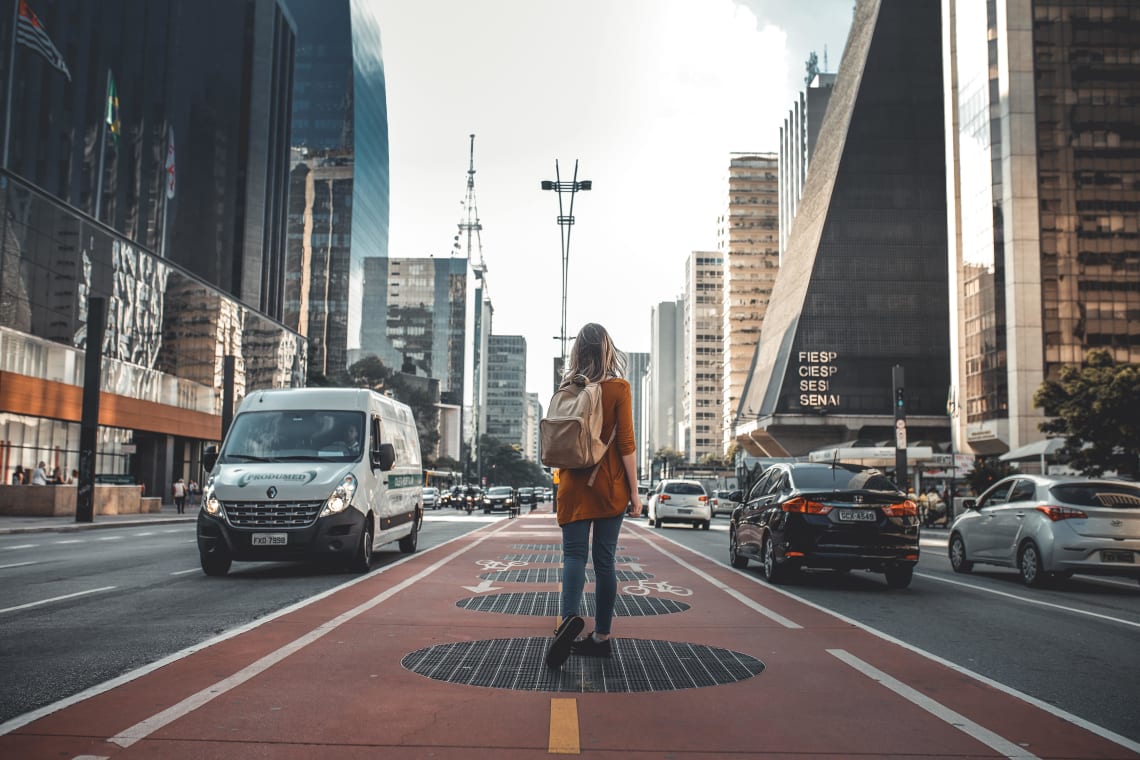
Traveling alone in Brazil is absolutely fine as long as you exercise common sense and normal precautions.
If you want to meet other travelers then you could stay in hostels or, even better, sign up for a Worldpackers placement in Brazil. This platform allows you to exchange your time for accommodation in dozens of cities around the country (and the world!). That way you'll save lots of money while meeting people from all over the world with the same attitude and travel spirit as yourself.
You'll not only get a truly unique Worldpackers travel experience, practice the local language and learn new skills, but you'll also have access to local knowledge of the best places to go and where to avoid... which is priceless advice! Additionally, if you have any safety concerns while traveling, Worldpackers offers support to ensure your security.
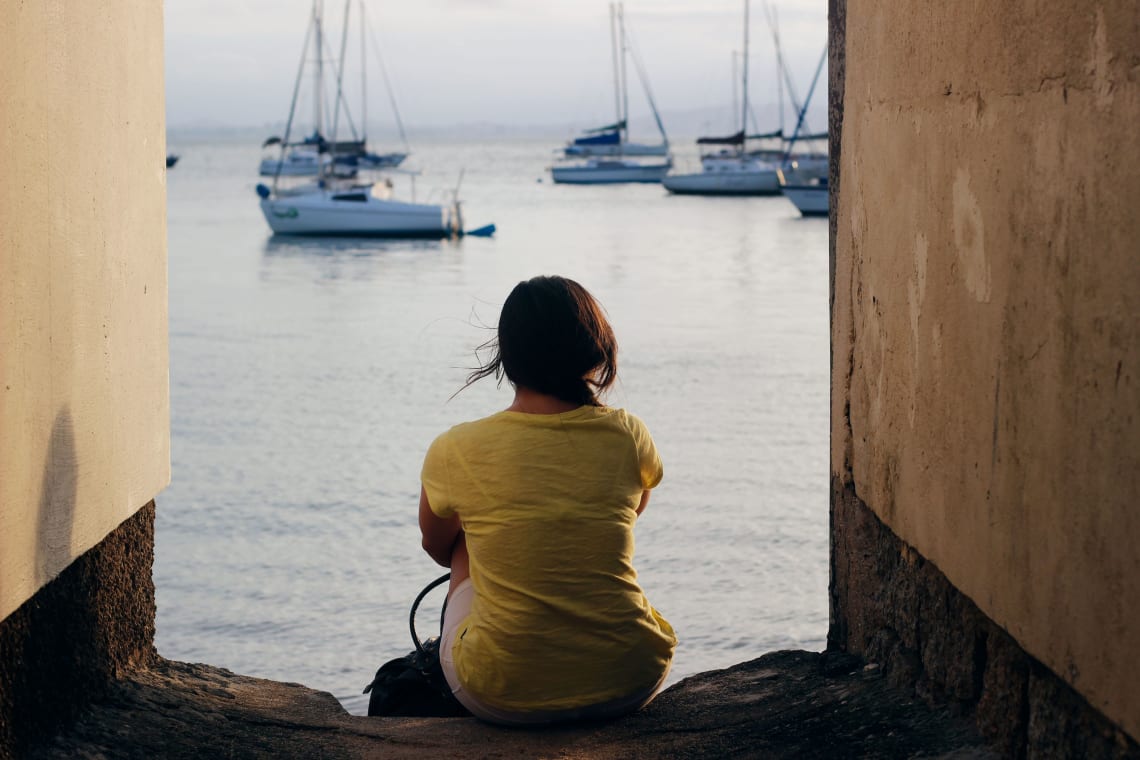
Now that we've addressed personal safety in Brazil, I'd like to answer a few other safety questions that I'm often asked.
If you're wondering which are the safest cities in Brazil to visit, it's usually best to follow the tourists. While that sounds like hell to me, it's the safest option.
If you're wondering where to go, the Worldpackers Brazil travel guide is a great resource for planning a Brazil itinerary. It's true that some cities are safer than others, but if you practice all the Brazil safety advice in this article you can have an incredible adventure in Brazil.
Of the 50 most violent cities in the world, 14 of them are in Brazil. I've listed them below, but keep in mind that the majority of the incidents which make these cities dangerous places to visit in Brazil are drug-related.
The violence mainly takes place in the favelas which are usually owned by drug cartels. If you avoid the favelas, you avoid the majority of the trouble:
Out of all of them, I only really felt uneasy in Fortaleza. Knowing that they're somewhat dangerous I still wouldn't avoid them. Recife has amazing beaches and a thriving music scene, Natal has huge sand dunes, etc. They each have their attractions and reasons to visit, so I'd just make sure you're extra vigilant when visiting.
I've had some of my most memorable experiences in smaller places — Ilheus and Ilha do Boipeba (Bahia), Jericoacoara. There are hundreds of idyllic places spread around Brazil so don't feel like you're restricted to the big cities. In most cases, smaller towns are the safest.
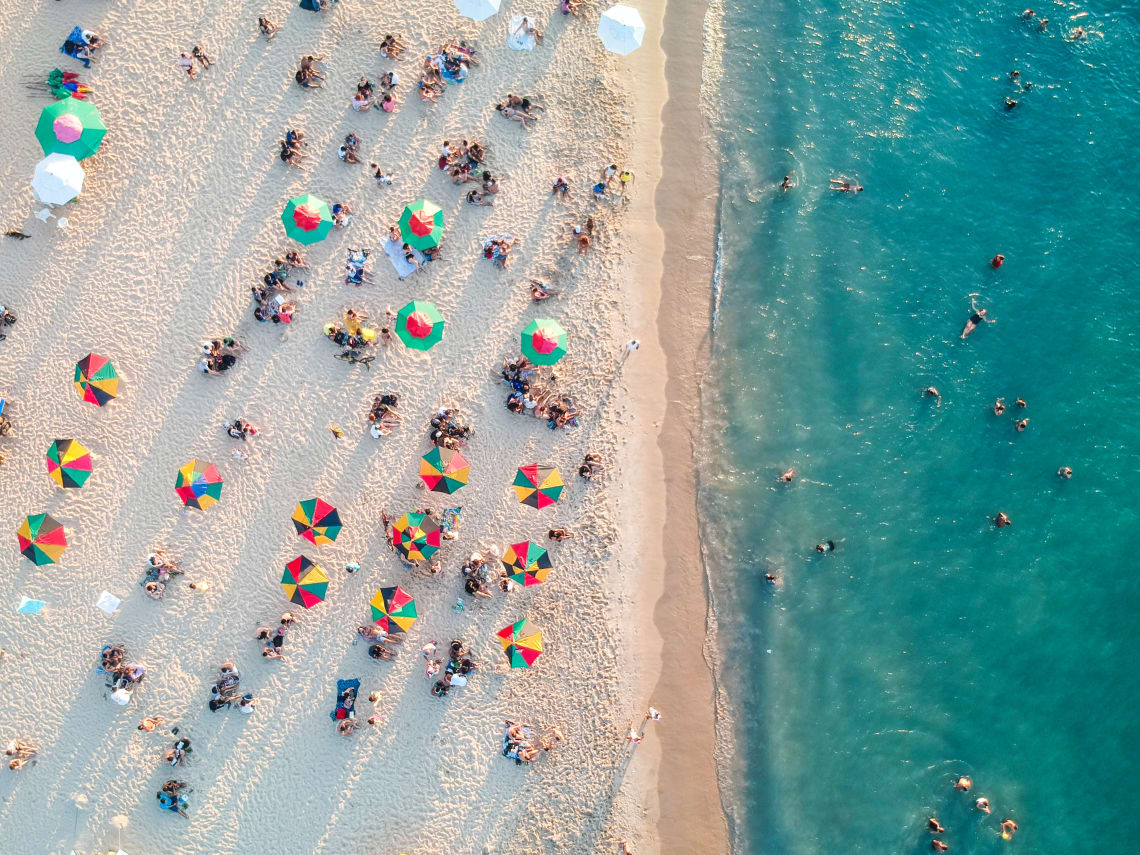
During my first visit to Brazil we were partying on the streets of São Paulo. It was late at night and the streets were crowded with revelers. I wanted a frosty beverage to cool down so we approached a street vendor. After ordering I realized I didn't have any cash.
Like a flash, he pulled out a portable credit card reader!
The street vendor had a tiny little polystyrene cold box filled with beer cans. This is not the usual kind of person I would happily hand my credit card over to, but apparently it's fine. Everyone does it and there are rarely any problems.
This goes for food, drink and souvenir vendors. I've used my card hundreds of times since with these vendors and have never had a single problem.
Unless the place you're staying has a special filter, I would advise against drinking water straight from the tap.
I've forgotten before and drank from the main tap and, even though my stomach is a delicate beast, I've never had any issues. But I wouldn't like to make a regular habit of it as I take my lead from the locals. They don't do it, so you shouldn't.
Compared to European standards, driving in Brazil is a little more 'loose.'
I've driven in many countries around the world without incident (except one 'minor' incident in Australia, but I still blame the kangaroo). I can say that I would not enjoy driving in Brazil. The attitude to driving in Brazil seems much more aggressive and less considerate to other road users.
The roads in Brazil are a mix of smooth, well-maintained routes and war-torn moonscapes. If you choose to drive you'll need to be extremely vigilant for potholes, drainage pits and random lumps and bumps. All that while keeping a watchful eye for the motorbikes that weave throughout the traffic with a death wish.
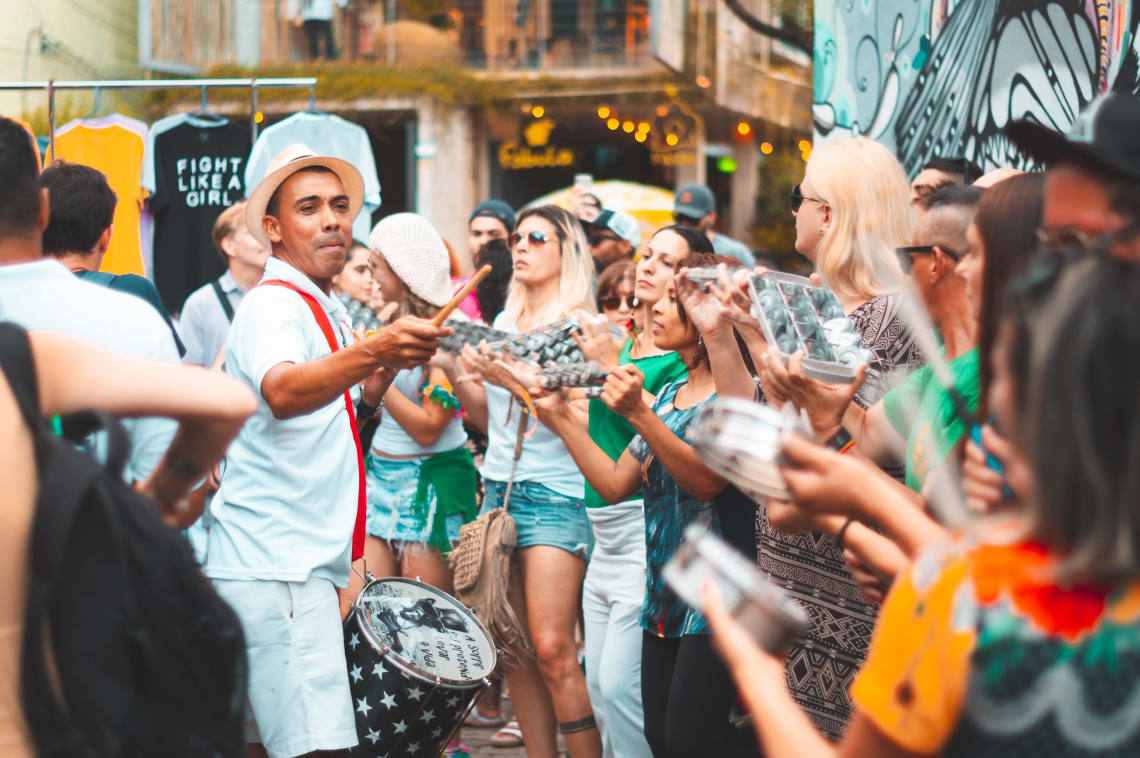
Carnival is a crazy time of year and you'll want to be extra aware. With the millions of people visiting the country to drink, dance and party all night long, it's easy to get swept up in the Brazilian party spirit. Be sensible!
Take all the warnings, tips and advice featured in this post and turn them up to 10. There will always be people looking to prey on drunk, lost or vulnerable people. Make sure you're not one of them by keeping your wits about you.
Don't carry expensive technology, don't accept drinks from strangers, never leave your own drink unattended, don't wander off and always tell people where you're going (if you're traveling alone then speak with the hostel reception, your Worldpackers host and/or other travelers). And enjoy the party, which is awesome!
Brazilian police do not have the best track record. A 2012 public survey determined that 63% of Brazilians were unsatisfied with police performance and 64% claimed the judiciary is dishonest. A 2016 survey of people living in favelas revealed that they feared the Brazilian Police more than drug traffickers.
Growing up in Manchester, UK, I was raised to look up to the Police. If I was ever in trouble I could always trust a Police Officer to offer immediate and reliable assistance. While I have approached officers here for directions, I would not feel entirely confident asking for much more.
While writing this article I saw someone have their phone ripped from their hand by a thief on a bicycle. They immediately ran to a nearby Police Officer sat in a car who seemed less than interested. He told her to wait while he spent the next 3 or 4 minutes trying to parallel park his vehicle.
I don't mean to bash all Brazilian Officers as I'm sure there are plenty of honest, hardworking servants who deal with terrible conditions on a daily basis, but the statistics of Police brutality and corruption are overwhelming.
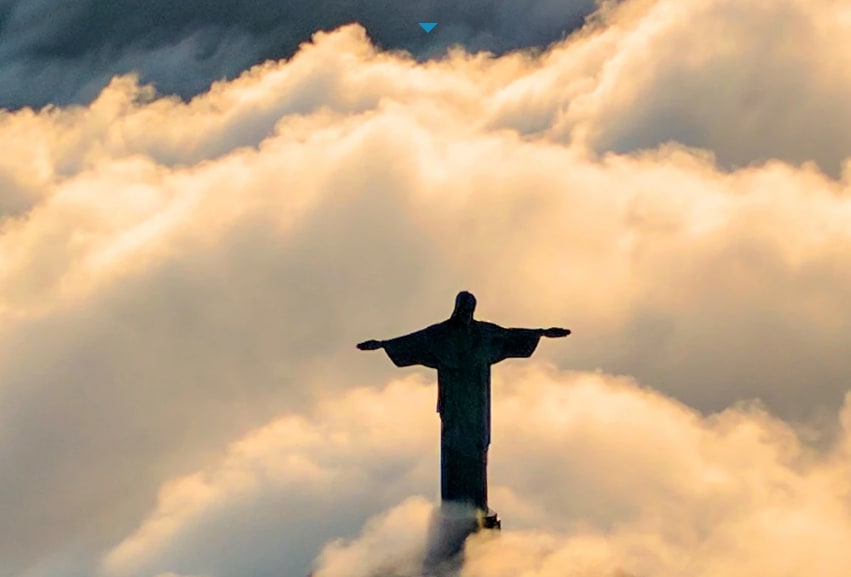
Brazil is not the most dangerous country in the world but, as we discussed above, to ensure you have the most amazing experience possible you'll want to take some precautions.
In addition to following standard travel safety tips, here are 7 pointers on how to stay safe while traveling in Brazil.
To avoid trouble when traveling in Brazil you'll want to try and blend in. You don't want to stand out as a potential target. There's a term in Portuguese specifically for this — "você não pode dar mole" which literally translates to "you cannot give soft." It refers to someone careless with their belongings, leaving things lying around, inviting trouble by flashing your wealth around, etc.
Don't be that person.
Brazil is a beautiful country and you'll absolutely want to photograph and document every minute. Regardless of if you're taking photos and videos with a giant DSLR camera or a cellphone, be aware of who is around you.
It's not uncommon for criminals to ride around on bicycles or motorbikes. If you see anyone looking suspicious, err on the side of caution.
If you're going to the beach (and Brazil has some of the best in Latin America) leave anything unnecessary at home. Gangs of youths have been known to wander the beaches looking for targets, bags left unattended, people waving phones around etc. Don't give anyone a reason to target you.
If you decide to hit the pubs or clubs and shake your booty, take a taxi or Uber back home. While there are plenty of nice neighborhoods, wandering the streets at night in Brazil is not recommended.
If you are taking a taxi, don't flag one down in the street. Using a dedicated app like 99 Taxis or taking an Uber is probably the safest option, although you'll also want to be vigilant here too. Always check that the license plate matches the one listed in the app, and never get in if there's another passenger inside.
If you can avoid carrying your actual passport and leave it locked in a safe somewhere, all the better. Take a photocopy of the photo page and take that with you. It's rare that you'll need your passport on a day-to-day basis so this is the safest option.
You will need it if you're taking a bus or plane (obviously), but for almost everything else you won't need ID.
I also always have an electronic copy saved in my emails... just in case.
Common sense says not to carry huge amounts of cash around with you. Pickpockets can strike at any time, even in the most 'safe' areas so limit the amount you have on you. Minimize the risk even further by spreading the money out amongst your pockets.
I'm not a personal fan of the concealed money pouches but some people swear by them. You can pick them up super cheap and they come in multiple different styles — shoulder holster, bumbag/fanny pack, chest strap, jockstrap, etc. Buy one before you travel and test it out for a week or two. You want it to be comfortable yet accessible without having to remove half your clothes.
When you're taking money from an ATM try and do it within a bank. It's not always possible if you're at the airport or bus station, so check who's stood nearby and wait if you have to.
I've not personally experienced this, but apparently it's a thing for opportunist thieves to reach into open bus windows to steal bags or mobile phones. This also goes for open car windows and even if you're cycling. It all goes back to the idea of always being aware of your surroundings while traveling in Brazil.
Whether it's people offering you a taxi ride at the airport or bus station (don't do it! Go to an official taxi rank or order an Uber) or people begging in the streets, be firm. If you want to give money then have some spare change in your pocket. Pulling out your wallet is not recommended for obvious reasons.
If you don't want to accept their request, be polite yet firm. I've experienced it several times where someone will approach me directly, thrust out their hand and try to shake mine. Once they make that connection they speak so fast you can't get a word in edgeways. It can be intimidating, but a quick "não, obrigado" is usually enough for them to move on to someone else.
Let's hope that nothing ever does, but what should you do if anything happens while you're traveling through Brazil?
If someone approaches you and demands your belongings, hand them over. No matter how tough you are, they could be carrying anything and your possessions are not worth your health.
If you've planned ahead and have electronic copies of your passport and essential phone numbers (insurance claims number, friends or family contacts, bank number to cancel cards) then you're already landing on your feet.
You'll need to go to the nearest Police Station as soon as possible to register the incident and get a crime reference number. Your insurance company likely won't process any claims without one.
If you need to phone the emergency services, use the numbers below:
If you need to contact the local embassy you can find the details below:
The best advice is not to panic. I've been lucky to only have four or five incidents in almost 20 years and some of them were avoidable. Common sense doesn't have to mean you're paranoid and avoid any fun whatsoever. It just means stopping occasionally, assessing the situation and checking your gut instincts.
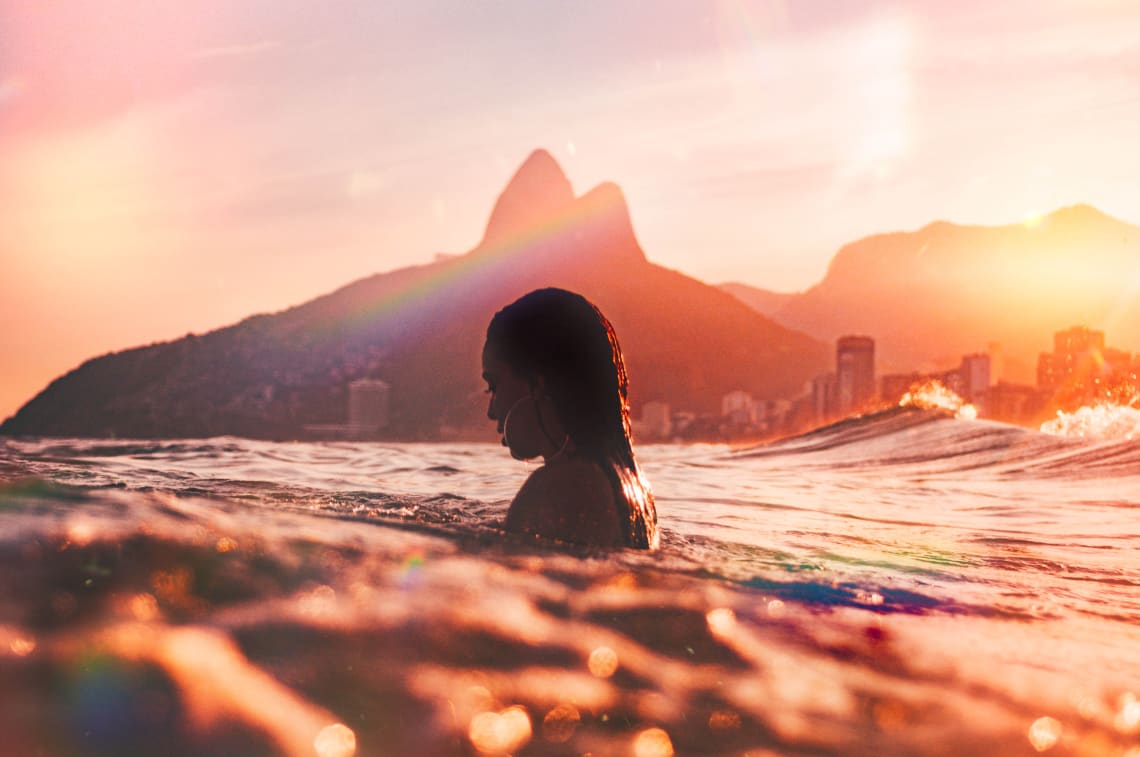
You can still have a life-changing Brazilian experience full of spontaneity and random adventures (I'm walking proof of that). You don't have to sacrifice fun for safety. Be sensible, do your research and take precautions and you'll have an incredible time.
I hope that this article provided enough advice for those who were wondering "is Brazil safe?" and that you don't give up on the idea of visiting this amazing country. Have fun!
Write here your questions and greetings to the author
Carolina
Aug 30, 2019
Great article! Speaking as a Brazilian I think this piece sums up quite well what I would normally adive anyone who would ask about if it is safe to travel in Brazil. :)
Abel
Nov 04, 2021
A small correction! The President didn't say that the congresswoman was ugly and that he wouldn't rape her, he said that "she didn't deserve to be raped", and that was in the middle of a hot discussion, that he wanted to keep a teenager who killed a couple of lovers in jail. and before killing the girl, he raped her for three days straight, and the congresswoman said he should be released because he was too young, and, for lack of arguments, she first offended him by calling him a rapist several times (without him ever having been accused of that), so one of the answers he gave was this, this was when he was also a congressman (he wasn't the President at the time). The opposition also calls him a dictator, a Nazi, a homophobic, a racist, etc., but they don't provide proof of this, and the newest offense is "genocidal" as they try to blame him for the deaths caused by Covid-19.